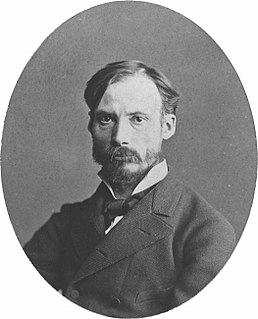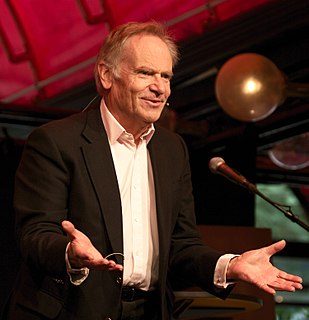A Quote by Stephen Nachmanovitch
Brahms once remarked that the mark of an artist is how much he throws away. Nature, the great creator, is always throwing things away. A frog lays several million eggs at a sitting. Only a few dozen of these become tadpoles, and only a few of those become frogs. We can let imagination and practice be as profligate as nature.
Related Quotes
Perhaps it's true that things can change in a day. That a few dozen hours can affect the outcome of whole lifetimes. And that when they do, those few dozen hours, like the salvaged remains of a burned house---the charred clock, the singed photograph, the scorched furniture---must be resurrected from the ruins and examined. Preserved. Accounted for. Little events, ordinary things, smashed and reconstitutred. Imbued with new meaning. Suddenly they become the bleached bones of a story.
I study everything that I do to become better all the time at my craft. The beauty for me about being an artist is that the dream will never die because I'm not obsessed with material things and don't care about the money and don't care about the attention of the public but only the love of my fans. For me it's about keeping the dream alive of how much more devoted, how much more honest, how much better of an artist can I become? That's the only fear that I ever have, that the dream will die.
That is what we must do when we fully know the purposefulness of life - live it gloriously by living it ecstatically. We can live it ecstatically only as we know the ecstatic nature of God and become like Him through being continually inspired by communion with Him. To become like Him, we must become aware of our identity with Him. We must know Him as Creator of all that is, and in so doing know ourselves as creator of all that is.
What's the difference between bulimics and anorexics?" I ask. "Anorexics are anorexics all the time," she says, "I'm only bulimic when I'm throwing up." Wow. She sounds just like my dad! "I'm only an alcoholic when I get drunk." There are all kinds of addicts, I guess. We all have pain. And we all look for ways to make the pain go away. Penelope gorges on her pain and then throws it up and flushes it away. My dad drinks his pain away. (107)
The economy - once a great scatter of small productive units in autonomous balance, has become dominated by two or three hundred giant corporations, administratively and politically interrelated... The political order, once a decentralized set of several dozen states with a weak spinal cord, has become a centralized executive establishment which has taken up into itself many powers previously scattered... The military order, once a slim establishment in a context of distrust fed by state militia, has become the largest and most expensive feature of government.
Nature is, above all, profligate. Don't believe them when they tell you how economical and thrifty nature is, whose leaves return to the soil. Wouldn't it be cheaper to leave them on the tree in the first place? This deciduous business alone is a radical scheme, the brainchild of a deranged manic-depressive with limitless capital. Extravagance! Nature will try anything once.
I spend several days at a time without enough sleep. At first, normal activities become annoying. When you are too tired to eat, you really need some sleep. A few days later, things become
strange. Loud noises become louder and more startling, familiar sounds become unfamiliar, and life reinvents itself as a surrealist dream.
I spend several days at a time without enough sleep. At first, normal activities become annoying. When you are too tired to eat, you really need some sleep. A few days later, things become strange. Loud noises become louder and more startling, familiar sounds become unfamiliar, and life reinvents itself as a surrealist dream.


































